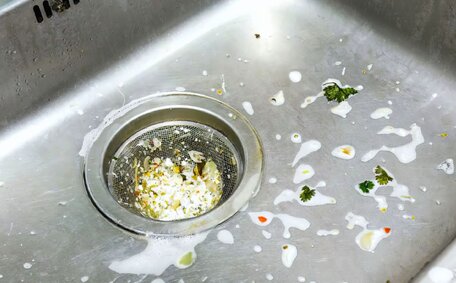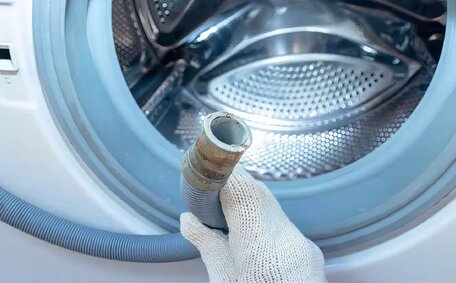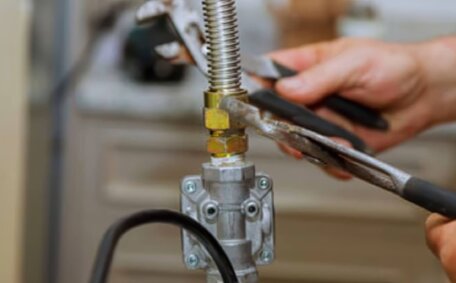Typical Timeline for a Gas Line Installation Project
The average gas line project in Blacktown spans 4-6 weeks, covering planning, permits, installation, and meter setup.
- 1-2 weeks for planning, permits and initial prep work
- Service line installation, linking your home to the main gas supply, may take up to 30 business days.
- Meter box preparation and gas meter finalisation require an extra 3 business days.
Final gas meter completion ensures operation, safety, and future maintenance services.
Timeframes may vary due to factors such as permit approvals, weather conditions, access issues, or complex installation requirements. We ensure your gas installations are timely, regulation-compliant, and adhere to best practice safety standards.
For a detailed estimate from your local experts on getting your line connected timeline, email us or call 1300 349 338. Our team is dedicated to delivering efficient natural gas connections and ensuring the highest safety standards for installations, including hot water services.
Factors That Affect the Duration of a Gas Line Installation
Several factors affect how quickly gas is available at your premises in Blacktown:
Permits and Paperwork
Acquiring the necessary permits and completing paperwork to get gas line requirements can span 1-3 weeks, depending on your council. More complex projects may need development applications submitted.
Site Prep and Access
Required trenching steps like space clearing, digging, refilling, and landscaping can alter installation timeframes.
Activities like repositioning furniture or exchanging floorboards are essential for heater installation, particularly when integrating your appliance, and also consume time.
Materials Supply
Sourcing the correct types of materials when pipes need specific type gas piping, fittings, and meter equipment can cause delays in projects if certain materials are not readily available.
Home Age and Construction
Older homes with asbestos, electrical, or drainage complications may need gas line solutions that are more intricate, especially when prompt installations are required. New builds with concrete slabs are often more straightforward.
Our services prioritise client needs, adherence to timelines, and a focus on safety. Contact us to discuss the timeline for your specific project.
Differences Between New Installations and Extending Existing Gas Lines
Installing a new natural gas line to accommodate appliances versus extending pipes from an existing source involves distinct processes and considerations.
New Gas Line Installations
- Surveying the property and planning pipe routes
- Obtaining appropriate permits and applications for your property natural gas
- Trenching to lay and conceal gas pipes also involves assessing the gas connection fee from the mains to the meter and appliances.
- Completing and securing the points to connect your gas and testing for leaks
- Backfilling trenches and landscaping
This detailed method ensures transparent installation costs for new gas line systems, despite potentially requiring more time.
Extending Existing Gas Lines
If you’ve decided to implement gas cooking systems, such as your stove, or add gas line infrastructure for an additional appliance in your home, extending the current pipes can often be a swifter option.
The process may involve:
- Creating connections and the capacity to reroute existing pipes for additional installations
- Installing some additional trenches/pipes if needed
- Completing connections to your new natural gas appliance items
- Testing for leaks
With fewer equipment requirements for extending gas lines, it’s worth considering the overall costs compared to installing a completely new gas line.
Contact us to discuss access to gas supply for your property in Blacktown.
Safety Precautions for Gas Line Installations
Use Licenced Gas Fitters
Engaging a licensed plumber and gas fitter is essential for gas line installation. They have extensive training and certification for safely handling and conducting a check your gas system installations per industry regulations.
Turn Off Gas Supply
The initial stage of gas connection includes shutting off the gas valve and securing components for installation. Performing installations without properly shutting off the gas is highly dangerous.
Careful Pipe Routing
Gas fitters plan pipe routes meticulously to avoid contact with electrical lines or sewer pipes, ensuring safety. Crossing other utilities can damage lines.
Pressure Testing
We use sophisticated diagnostics to conduct thorough pressure testing, confirming pipe integrity and detecting leaks. Specialised equipment helps us check for small leaks that may not emit the typical gas odour.
Ventilation During Testing
Testing new gas lines is performed in areas with ample ventilation. Leaks in confined spaces could lead to explosive gas accumulation. We take every precaution to prevent hazards during gas installations.
Emergency Shut Offs
Updated safety codes require excess flow valves that automatically cut gas flow during emergencies. Excess flow valves are installed on all new gas line installations for emergency shut-offs.
By adhering to strict safety protocols, the services we offer encompass both installation gas and maintenance, thereby ensuring no gas leaks and compliance with Australian standards. Contact our team to discuss your project.
Permits and Legal Requirements for Gas Line Installations
Gas line installations involve strict legal requirements to ensure safety and compliance. Our expertise can help in navigating the permitting process, which requires approval from multiple authorities before work can legally commence.
Development Applications
For substantial infrastructure like new estates or commercial sites needing to do gas line installation, a development application (DA) may be required for initial council planning approval. DAs can take 6-12 weeks depending on project complexity.
Gas Compliance Certificate
Every residential gas installation must conclude with a gas compliance certificate, issued by a licensed professional. This legally certifies the gas system was installed to Australian gas Standard AS/NZS 5601 and is safe, often proving cheaper than non-certified counterparts over the long-term.
Trade Permits
Licensed gas fitters can do the application for relevant plumbing and drainage permits before starting physical works. These are approved by local water authorities and include strict codes for trenching, pipe materials, purging, testing and restoration.
We efficiently manage the gas permitting process, ensuring fully compliant and insured gas line installations. Contact us or call 1300 349 338 to discuss your project.
Step-by-Step Guide for Installing Gas Lines in a Home
1. Consultation and Planning
The first step is to contact a reputable gas plumber who can provide a safety briefing, establish your needs, assess the site, and map out the ideal routes for piping. They devise a comprehensive plan which includes when to turn gas on or off, all adhering to the latest regulations.
2. Permit Applications
Your gas fitter, responsible for switching off your gas supply, handles submitting all necessary permit applications to council authorities and utility providers on your behalf earlier to any work commencing.
3. Trenching and Piping
Gas line street trenches are prepared, revealing where gas line installation occurs, extending from the strategically situated gas metre to each outlet throughout the property. Depth and drainage requirements are strictly followed.
4. System Assembly and Testing
The expert can install all crucial connections, safety valves, and scrutinise every joint and pipe using specialised methods to detect leaks and confirm integrity.
5. Backfilling and Reinstatement
After testing, ensuring proper flow and getting your gas to its destination, trenches are carefully backfilled and landscaped to match their surroundings. All mess and debris is promptly cleared by the gas fitting team.
6. Compliance Certification
Upon completion, your gas fitter will provide a Compliance Certificate, certifying adherence to Australian Standards and regulations.
Our experienced team ensures that your gas hot water systems and appliance connections comply with the highest safety and industry standards.
Hiring Professional Gas Fitters vs DIY Installations
Homeowners often wonder if their expertise is enough to personally undertake and save on gas line installations. Gas line projects are complex and risky, usually beyond the capability of a non-professional.
Gas installations must be performed by licensed gas fitters, who have the necessary expertise for safe and legal installations. They follow strict industry standards and hold appropriate insurance to cover accidents or compliance issues.
Attempting unsafe DIY gas line installations can jeopardise home insurance policies and leave you liable for any damages. Faulty work also risks leaking gas, fire hazards or even explosions.
Our certified gas fitters deliver proficient repair and efficient service for gas infrastructure in Blacktown. We guarantee safety by managing permit procedures and offering certified gas compliance upon project completion.
Avoid taking risks with amateur DIY gas line jobs - instead, trust our licenced plumbing services to handle your new installation or appliance connection safely. Contact us for advice or an obligation-free quote.






